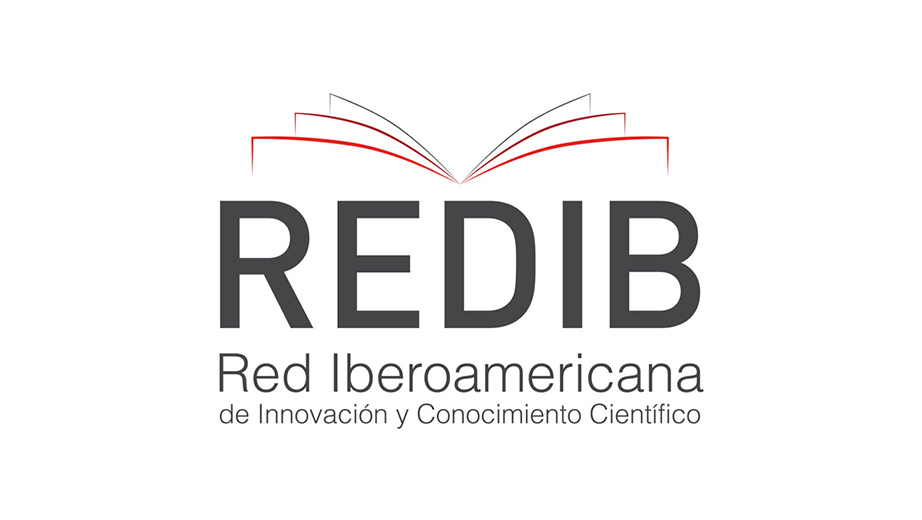The Acceptance of the Offer in Spanish and Arabic: Empirical Analysis
DOI:
https://doi.org/10.71564/dh.vi6.62Keywords:
Speech Acts, Acceptance, Offer, Peninsular Spanish, Egyptian ArabicAbstract
Our goal is to analyse the role of social distance and power in the formulation of the speech act of acceptance of offers in Peninsular Spanish and Egyptian Arabic. For the collection of data, we rely on the instrument of role-playing. Our participants are young Egyptians and Spaniards, men and women, with a medium-high socio-cultural level. The most significant results indicate that there is a phase of rejection-insistence in the intervention of the Egyptians, regardless of the degree of relationship between the speakers. In Spanish, this phase only appears in cases of close relationship. Although the configuration of acceptance is more similar in the two languages in the latter case, there are still other divergences that separate Egyptians and Spaniards when it comes to formulating this act. The data obtained might be useful for the teaching of Spanish and Arabic as foreign languages.
Downloads
References
ALAOUI, Sakina (2011). “Politeness Principle: A Comparative Study of English and Moroccan Arabic Requests, Offers and Thanks”. European Journal of Social Sciences, 20 (1): 7-15.
AL-KHATIB, Mahmoud (2006). “The Pragmatics of Invitation Making and Acceptance in Jordanian Society”. Journal of Language and Linguistics, 5 (2): 272-294.
AL-SHAER, Ibrahim (2013). “Speech Acts in American English and Palestinian Arabic”. International Journal of Language Learning and Applied Linguistics World, 4 (1): 223-244.
ANSSARI NAIM, Saida (2011). The Speech Acts in Moroccan Arabic: An Intercultural Approach. Tesis doctoral inédita. Universidad de Valencia.
AUSTIN, John (1962). How to Do Things with Words. Oxford: Oxford University Press.
BARHOUMI, Khaoula (2018). “Análisis sociopragmático de los cumplidos en árabe tunecino y en español peninsular”. En Esther ÁLVAREZ GARCÍA y María Valentina BARRIO CORRA (eds.). Estudios panhispánicos: lingüística teórica y aplicada. León: Universidad de León, 161-175.
BEEBE, Leslie, Tomoko TAKAHASHI y Robin ULISS-WELTZ (1990). “Pragmatic Transfer in ESL Refusals”. En Robin SCARCELLE, Elaine ANDERSON y Stephen KRASHEN (eds.). Developing communicative competence in a second language. Nueva York: Newbury House, 55-73.
BEEBE, Leslie y Tomoko TAKAHASHI (1989). “Sociolinguistic Variation in Face-Threatening Speech Acts: Chastisement and Disagreement”. En Miriam R. EISENESTEIN (ed.). The Dynamic Interlanguage: Empirical studies in second language variation. Nueva York: Plenum Press, 199-218.
BROWN, Penelope y Stephen LEVINSON (1987). Politeness: Some Universal in Language Usage. Cambridge: Cambridge University Press.
CHAMANI, Fariba y Parvane ZAREIPUR (2010). “A Cross-Cultural Study of Apologies in British English and Persian”. Concentric: Studies in Linguistics, 36 (1): 133-153.
CORDELLA, Marisa (1991). “Spanish Speakers Apologizing in English. A Cross-Cultural Pragmatics Study”. Australian Review of Applied Linguistics, 14 (2): 115-138.
RAMAJO CUESTA, Ana (2015). La cortesía verbal en en árabe dialectal y su aplicación didáctica. Tesis doctoral inédita. Universidad Autónoma de Madrid.
DEMIR, Cüneyt y Mehmet TAKKAÇ (2016). “Contrastive Pragmatics: Apologies & Thanks in English and Italian”. International Journal of English Linguistics, 6 (1): 73-85.
DÍAZ PÉREZ, Francisco Javier (2003). La cortesía verbal en inglés y en español: actos de habla y pragmática intercultural. Jaén: Universidad de Jaén.
EBADI, Saman y Ahmed RAWDHAN SALMAN (2015). “Using Compliment Responses in Arabic and English: Focusing on Male and Female EFL Learners in Iraq”. Journal of Applied Linguistics and Language Research, 2 (7): 157-178.
EISENSTEIN, Miriam y Jean W. BODMAN (1986). “I Very Appreciate: Expressions of Gratitude by Native and Non-native Speakers of American English”. Applied Linguistics, 7: 167-185.
EL IMRANI, Nizar (2015). “El Acto de petición en situación de asimetría entre los interlocutores: ejemplo contrastivo entre el árabe marroquí, español y polaco”. Turjuman, 2 (24): 95-108.
FAHMI BATAINEHA, Rula y Ruba FAHMI BATAINEH (2008). “A Cross-Cultural Comparison of Apologies by Native Speakers of American English and Jordanian Arabic”. Journal of Pragmatics, 40 (4): 792-821.
FÉLIX-BRASDEFER, César (2003). “Declining an Invitation: A cross-cultural Study of Pragmatic Strategies in American English and Latin American Spanish”. Multilingua. Journal of Cross-Cultural and Interlanguage Communication, 22 (3): 225-255.
——— (2008). Politeness in Mexico and the United States: A Contrastive Study of the Realization and Perception of Refusals. Ámsterdam: John Benjamins Publishing Company.
GHAZANFARI, Mohammad (2013). “Investigating Cross-linguistic Differences in Refusal Speech Act among Native Persian and English Speakers”. International Journal of Research Studies in Language Learning, 2 (4): 49-63.
GUDYKUNST, William y Stella TING-TOOMEY (1988). Culture and Interpersonal Relationships. Newbury Park: Sage.
HOUCK, Noel y Susan M. GASS (1996). “Non-native Refusals: A Methodological Perspective”. En GASS, Susan M. y Joyce NEU (eds.). Speech Acts Across Cultures. Challenges to Communication in a Second Language. Berlín-Nueva York: Mouton de Gruyter, 45-64.
HUA, Zhu; Li WEI y Qian YUAN (2000). “The Sequential Organization of Gift Offering and Acceptance in Chinese”. Journal of Pragmatics, 32 (1): 81-103.
JEFFERSON, Gail (2004). “Glossary of Transcript Symbols with an Introduction”, Conversation analysis: studies from the first generation (Pragmatics and Byond Series). Ed. Gene LERNER. Ámsterdam: John Benjamins, 13-31 [https://doi.org/10.1075/pbns.125.02jef].
JIA, Yuxin (2007). “Pragmatic Diversity, Pragmatic Transfer, and Cultural Identity”. Intercultural Communication Studies, 16 (2): 37-54.
LEECH, Geoffery (1983). Principles of Pragmatics. Londres: Longman.
LORENZO-DUS, Nuria (2001). “Compliment Responses among British and Spanish University Students: A Contrastive Study”. Journal of Pragmatics, 33 (1): 107-127.
MORKUS, Nader (2009). The Realization of the Speech Act of Refusal in Egyptian Arabic by American Learners of Arabic as a Foreign Language. Tesis doctoral. Florida: South Florida University [disponible en https://scholarcommons.usf.edu: https://bit.ly/39x6p1b].
PABLOS-ORTEGA, Carlos de. (2010). “Attitudes of English Speakers towards Thanking in Spanish”. Pragmatics, 20 (2): 149-170.
SADEGHI, Elahe y Gholamreza ZAREI (2013). “Investigating the Use of Compliments in Persian and English: A Case Study of Iranian EFL Students”. Journal of Foreign Language Teaching and Translation Studies, 2 (2): 30-49.
SEARLE, John (1969). Speech Acts. An Essay in Philosophy of Language. Cambridge: Cambridge University Press.
SIEBOLD, Kathrin (2008). Actos de habla y cortesía verbal en español y en alemán: estudio pragmalingüístico e intercultural. Fráncfort: Peter Lang.
THOMAS, Jenny (1983). “Cross-culture Pragmatic Failure”. Applied Linguistics, 4: 91-112.
VICENTE MOLINERO, María del Carmen y María del Carmen HORNO CHÉLIZ (2016). “Procesos de transferencia pragmática del árabe marroquí en la adquisición de español peninsular. El ámbito de los saludos”. Dirāsāt Hispānicas. Revista Tunecina de Estudios Hispánicos, 3: 141-163.
WALTERS, Joel (1979). “Strategies for Requesting in Spanish and English Structural: Similarities and Pragmatic Differences”. Language Learning, 29 (2): 277-293.
WEIYI, Wang (2007). Chinese Culture of Social Interactions: Current Sequential Organizations in Gift Offering and Acceptance. Department of History, International and Social Studies, Universidad de Aalborg (Dinamarca) [https://core.ac.uk/reader/60398620].
WOLFSON, Nessa (1989). Perspectives: Sociolinguistics and TESOl. Cambridge, Massachusetts: Newbury House.
YEUNG, Lorrita Ngor To (1979). “Polite Requests in English and Chinese Business Correspondence in Hong Kong”. Journal of Pragmatics, 27 (4): 505-522 [https://doi.org/10.1016/0378-2166(95)00050-X].
Downloads
Published
How to Cite
Issue
Section
License
Copyright (c) 2020 Hagar Omar Saber Ahmed - Saad Mohamed Saad

This work is licensed under a Creative Commons Attribution-NonCommercial 4.0 International License.
Los autores que publican en esta revista están de acuerdo con los siguientes términos:
Los autores conservan los derechos de autor y garantizan a la revista el derecho de ser la primera publicación del trabajo al igual que licenciado bajo una Creative Commons Attribution License que permite a otros compartir el trabajo con un reconocimiento de la autoría del trabajo y la publicación inicial en esta revista, sin hacer uso del material con propósitos comerciales.
Los autores pueden establecer por separado acuerdos adicionales para la distribución no exclusiva de la versión de la obra publicada en la revista (por ejemplo, situarlo en un repositorio institucional o publicarlo en un libro), con un reconocimiento de su publicación inicial en esta revista.
Se permite y se anima a los autores a difundir sus trabajos electrónicamente (por ejemplo, en repositorios institucionales o en su propio sitio web) antes y durante el proceso de envío, ya que puede dar lugar a intercambios productivos, así como a una citación más temprana y mayor de los trabajos publicados.






























